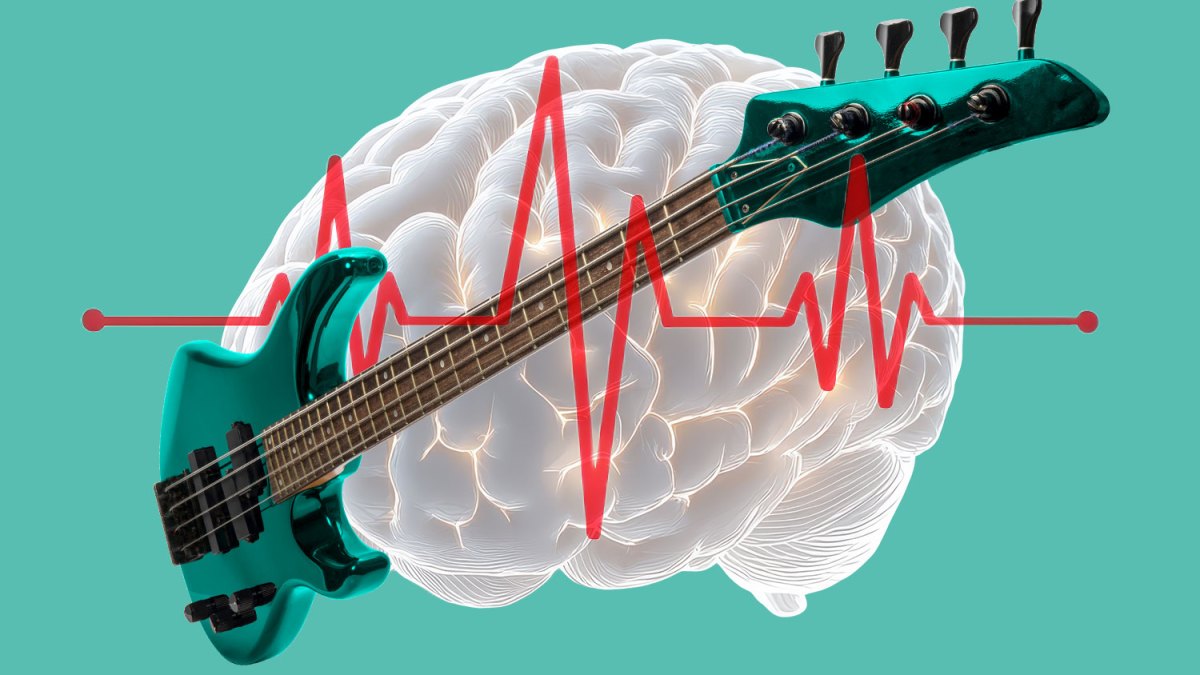There is no vaccine that can protect us from feeling sore when something hurts us but the next best thing might be learning to play a musical instrument — because a study has found that musicians are less susceptible to pain.
There are many benefits that come with studying music, helping to boost your cognitive skills, your dexterity and your mental health. It may also reshape the relationship between your brain and your hands, researchers have discovered.
Many instruments require strength and dexterity in the fingers in order to play the correct notes on the piano keyboard, guitar strings or saxophone keys. Musicians may need to regularly push through a pain or discomfort barrier in order to practice a piece of music.
• Groovy music ‘boosts brainpower as well as mood’
Anna Zamorano, a professor at Aarhus University in Denmark, wrote on The Conversation, a news website: “After years of working with musicians and witnessing how they persist in musical training despite the pain caused by performing thousands of repetitive movements, I started wondering: if musical training can reshape the brain in so many ways, can it also change the way musicians feel pain, too?”
Previous research has shown that persistent pain can change and shrink the brain’s “map” of the affected region, potentially in an effort to avoid over-using the pain-affected area. But some people are less sensitive to pain than others and their brains do not seem to be as strongly affected.

Anna Zamorano, a professor at Aarhus University in Denmark, led the study
For their study, published in the journal Pain, researchers took 19 musicians and 20 non-musicians and induced a feeling of pain in their hand that lasted for several days by injecting a protein called nerve growth factor. When injected into the hand it creates the sensation of aching that lasts for several days without causing any lasting damage.
They then measured the participants’ brain activity, tracking magnetic pulses on their journey through the brain to assess the areas that control the hand. They conducted these scans before the injections and then again two and eight days later “to see if pain changed how the brain was working”.
• Should you push through the pain barrier?
“Even before we induced pain, the musicians showed a more finely tuned hand map in the brain, and the more hours they had spent practising, the more refined this map was found to be,” Zamorano said.
“After pain was induced, the musicians reported experiencing less discomfort overall. And while the hand map in non-musicians’ brains shrank after just two days of pain, the maps in musicians’ brains remained unchanged. Amazingly, the more hours they had trained, the less pain they felt.”

The pain caused by repetitive movements help build resilience to pain
TAIYOU NOMACHI/GETTY IMAGES
This does not necessarily mean that learning to play music can cure chronic pain, she explained, but said that the findings may help scientists to understand more about why some people are “more resilient to pain than others”, which might help in the designing of new treatments for those suffering from long-term pain.
“For me, this is the most exciting part,” Zamorano said. “The idea that as a musician, what I learn and practise every day doesn’t just make me better at a skill, but that it can literally rewire my brain in ways that change how I experience the world, even something as fundamental as pain.”

